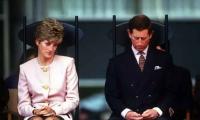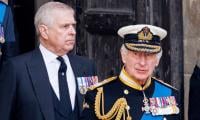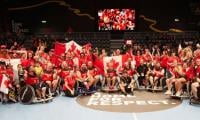ISLAMABAD: Prime Minister Nawaz Sharif didn’t directly figure in any transaction whatsoever relating to the London flats and offshore companies, purchased by his son Hussain in January 2006, according to the documents submitted in the Supreme Court.
Any evidence to implicate in any way the respondent number one, the premier, who is the real target of the challengers particularly Pakistan Tehreek-e-Insaf (PTI) Chairman Imran Khan, is yet to be produced before the top court.
However, in another sense the prime minister exists in the case for the mere fact that his deceased father and two of his four children, Hussain and Maryam, prominently feature in the whole affair. The whole matter revolves round late Mian Muhammad Sharif, Hussain and Maryam.
Moreover, the deal under which money was used to buy the London properties exclusively pertains to Mian Sharif that he gave to his grandson, Hussain, and not to his other grandchildren, Maryam or Hassan, or his sons, Nawaz Sharif, Shahbaz Sharif or late Abbas Sharif or their children. It is not yet known that what Mian Sharif had given to other members of the family.
Importantly, all the details of the transaction relate to the seventies, when no member of the Sharif family was even in politics. It had become part of the government in 1981 when Nawaz Sharif was inducted as finance minister in the Punjab cabinet of Lt Gen (R) Ghulam Jilani.
Significantly, as per the documents produced by the Sharif family, the excellent relations of Sharifs’ patriarch with the ruling families of Qatar and the United Arab Emirates (UAE) date back to seventies when the Sharif family, having become bankrupt due to nationalisation of its entire industry, was just a business group without having any moveable or immovable assets in Pakistan.
The remarkable ties can be gauged from the fact that the then Dubai government, respecting the knowledge, know-how and experience of Mian Sharif, not only granted leased land for the steel mills but also gave with immediate effect all utility connections required for it, according to the concise statement of the Sharif family.
Furthermore, the steel factory was established by obtaining loans from Dubai bank and thus no amounts were transferred or transmitted from Pakistan for the purpose of setting up, financing or running this business. These loans were settled when the steel mills was sold in 1978.
It also became clear from the concise statement that although Mian Sharif had moved to the UAE and set up the Gulf Steel Mills in 1974, he carried on this very business through his nephew Tariq Sharif in which Muhammad Hussain, who later died, was a partner.
In 1980 the consideration of Arab Emirati dirhams (AED) 12 million of sale of 25 percent shares of the new company that ran the steel mills was entrusted to the Al-Thani family of Doha to invest in its real estate business.
In his speech to the National Assembly, the prime minister had said the Dubai mill was sold for about AED 33.37 million ($9 million) in April 1980. He had also stated that the sale proceeds of the Dubai mills were used to establish the Jeddah factory, which was sold in 2005 for 64 million Riyals ($17 million). “All the documents relating to the Dubai and Jeddah factories exit. These are the sources and resources which were utilised to purchase London flats.”
This created confusion in many minds as the Qatar investment had not found any mention in his address. A quick reaction was that there was a gross contradiction in the details of the documents filed by the Sharif family in the Supreme Court now and the premier’s address to the National Assembly.
However, what is clear is that an amount of AED 12 million of the sale proceeds of the Dubai mills was invested in the business of the Al-Thani family. Now the question arises where the remaining money, AED 21.37 million, went. It is believed that the remainder sum was utilised for establishing the Jeddah mills. But this was not made clear by the prime minister.
Another important document that Hussain presented to the court is the trust deed, certified by a London notary public, which was signed by him and Maryam. According to it, she is only the trustee, having no financial stake or interest in the London properties or the offshore companies, while he is their beneficiary.
A vital question to be settled by the court will be whether the duly notarised trust deed was to be relied upon or the document released by the International Consortium of Investigative Journalists (ICIJ), which declares Maryam as the beneficial owner of the offshore companies, will be trusted.
In addition, a letter of the former ruler of Qatar whose son is now its supreme leader stated that his father had longstanding business relations with Mian Sharif, which were coordinated through his eldest brother. The two families enjoyed and continue to enjoy relations.
It also said he was informed that during the year 1980, Mian Sharif expressed his desire to invest a certain amount of money in real estate business of Al-Thani family in Qatar. He understood at that time that an aggregate sum of around 12 million dirhams was contributed by Mian Sharif originating from the sale of business in Dubai.















